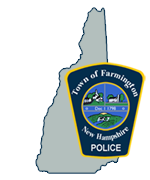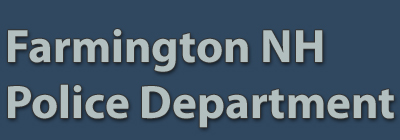From the NH Attorney General…
The scams work like this: Someone responds to your posting or ad, and offers to use a cashier’s check, personal check or corporate check to pay for the item you’re selling. At the last minute, the so-called buyer (or the buyer’s “agent”) comes up with a reason for writing the check for more than the purchase price, and asks you to wire back the difference after you deposit the check. You deposit the check and wire the funds back to the “buyers.” Later, the check bounces, leaving you liable for the entire amount.
The checks are counterfeit, but good enough to fool unsuspecting bank tellers.
Here’s how to avoid a check overpayment scam:
- Know who you’re dealing with. In any transaction, independently confirm the buyer’s name, street address, and telephone number.
- Don’t accept a check for more than your selling price, no matter how tempting. Ask the buyer to write the check for the correct amount. If the buyer refuses to send the correct amount, return the check. Don’t send the merchandise.
- Consider an alternative method of payment. As a seller, you can suggest an escrow service or online payment service. There may be a charge for an escrow service. If the buyer insists on using a particular escrow or online payment service you’ve never heard of, check it out. Visit its Web site, and read its terms of agreement and privacy policy. Call the customer service line. If there isn’t one or if you call and can’t get answers about the service’ reliability, don’t use the service. To learn more about escrow services and online payment systems, visit www.ftc.gov/bcp/edu/pubs/consumer/alerts/alt014.shtm.
- If you accept payment by check, ask for a check drawn on a local bank, or a bank with a local branch. That way, you can make a personal visit to make sure the check is valid. If that’s not possible, call the bank where it was purchased and ask if the check is valid. Get the bank’s phone number from directory assistance or an Internet site that you know and trust, not from the person who gave you the check.
- If the buyer insists that you wire back funds, end the transaction immediately. Legitimate buyers don’t pressure you to send money by Western Union or a similar company. In addition, you have little recourse if there’s a problem with a wire transaction.
- Resist any pressure to “act now.” If the buyer’s offer is good now, it should be good after the check clears the issuing bank.
- Throw away any offer that asks you to pay for a prize or a gift. If it’s free or a gift, you shouldn’t have to pay for it. Free is free.
- Resist the urge to enter foreign lotteries. Most foreign lottery solicitations are phony. What’s more, it is illegal to play a foreign lottery through the mail or the telephone.
Consumers with questions can call the New Hampshire Attorney General’s Consumer Protection hotline at 888-468-4454 or go online to the Consumer Protection and Antitrust Bureau’s Web site.


 Follow our News Feed
Follow our News Feed Follow us on Twitter
Follow us on Twitter Follow us on Facebook
Follow us on Facebook